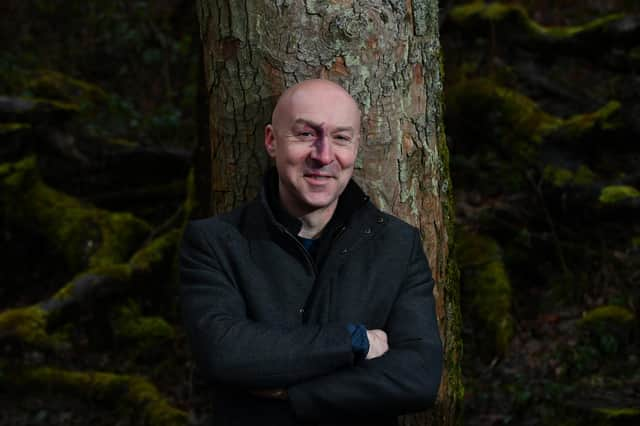Book review: The Cliff House, by Chris Brookmyre


Chris Brookmyre’s novel is a hi-tech variation on Agatha Christie’s classic trapped-on-an-island mystery And Then There Were None. Things being what they are now, when fashion decrees that crime novels should be great baggy monsters, it is much fatter and more self-indulgent than Christie’s elegant little classic. The plot is just as incredible and just as silly, though the author must be credited with some nice conjurer’s sleight of hand: now you see it, now you don’t. On the other hand Brookmyre, lacking Dame Agatha’s ruthlessness, treats his characters sympathetically, ghastly as they almost all are. You mightn’t want to be trapped in a room with any of them, but they are fine on the page.
The setting is of course an island, apparently uninhabited but for its castle converted into a luxury hotel. It is now about to receive a hen party, preparatory to a second marriage for Jen who has recently become extra-rich by selling her muffin-making business at a high price. Jen is almost 40, on the cusp of middle-age as we used to think. Her guests are friends of her youth, except for one of her employees and her tennis coach, Kennedy, not yet 30. The star guest is Michelle, a singer, now a global star. Another is Michelle’s girlhood friend, Helena, formerly guitarist and songwriter with the band from which Michelle broke away. Resentful storms there, you can see. Then there is Jen’s former sister-in law, bitter since the disappearance, perhaps death, of her beloved brother Jason. There is also Jen’s next sister-in-law to be, a small girl called Sharisa, who makes trouble and can’t hold her drink. There’s something a bit iffy about the hotel proprietor, Lauren, also. Well, there would have to be, wouldn’t there?
Advertisement
Hide AdBrookmyre is of course one of the brightest stars of Tartan Noir, but this isn’t really a Tartan Noir novel. There are no police and the seedy world of Glasgow’s criminal underside features only in recollection. It is, however, a bold undertaking. For a middle-aged white man to write a novel in which all the principal characters are women is challenging in today’s literary world, where any such writing is likely to have the author charged with cultural appropriation and put in the pillory.
On the party-goers’ first evening on the island, when they are all soaking up cocktails, a dead body is found in the kitchen, and Sarisa who has had a cocktail or two too many, disappears. Their phones go dead, the internet is down and they are trapped incommunicado.
Time for the murdering to begin? Well, not quite. In time you will realize that the Dame Agatha reference is a red herring, the sort of ploy she delighted in herself. All these women have wronged one or other of the party. Even while they search with increasing urgency for Sarisa and tension is for a time very nicely ratcheted-up, you realize that this is less about murder than other sorts of crime, the kind in which the Law isn’t interested. In short, all these women are being subjected to a course of moral examination and indeed re-education. It’s less an Agatha Christie novel than a Jane Austen one, in which characters are brought to an understanding of who they are, of what right thinking and right behaviour are. The characters are indeed more fully imagined and developed than is usual in crime fiction. There are the makings of a realistic novel in the treatment of relationships between them, but the demands of the plot drive realism out of the window.
As an entertainment The Cliff House is fine, and Brookmyre is an experienced and skilful hand who drives his story along at the gallop, writing also with authority about modern technology. If one feels that something more interesting might have been done with the characters’ complicated relationships, that would have required this to be a different and less superficially exciting novel. As things are, it is sure to please everyone who likes this sort of thing, just as Dame Agatha, in her very different way, has pleased millions of readers for the last hundred years.
The Cliff House, by Chris Brookmyre, Little, Brown, 334pp, £18.99. Chris Brookmyre appears at the Edinburgh International Book Festival on 18 August